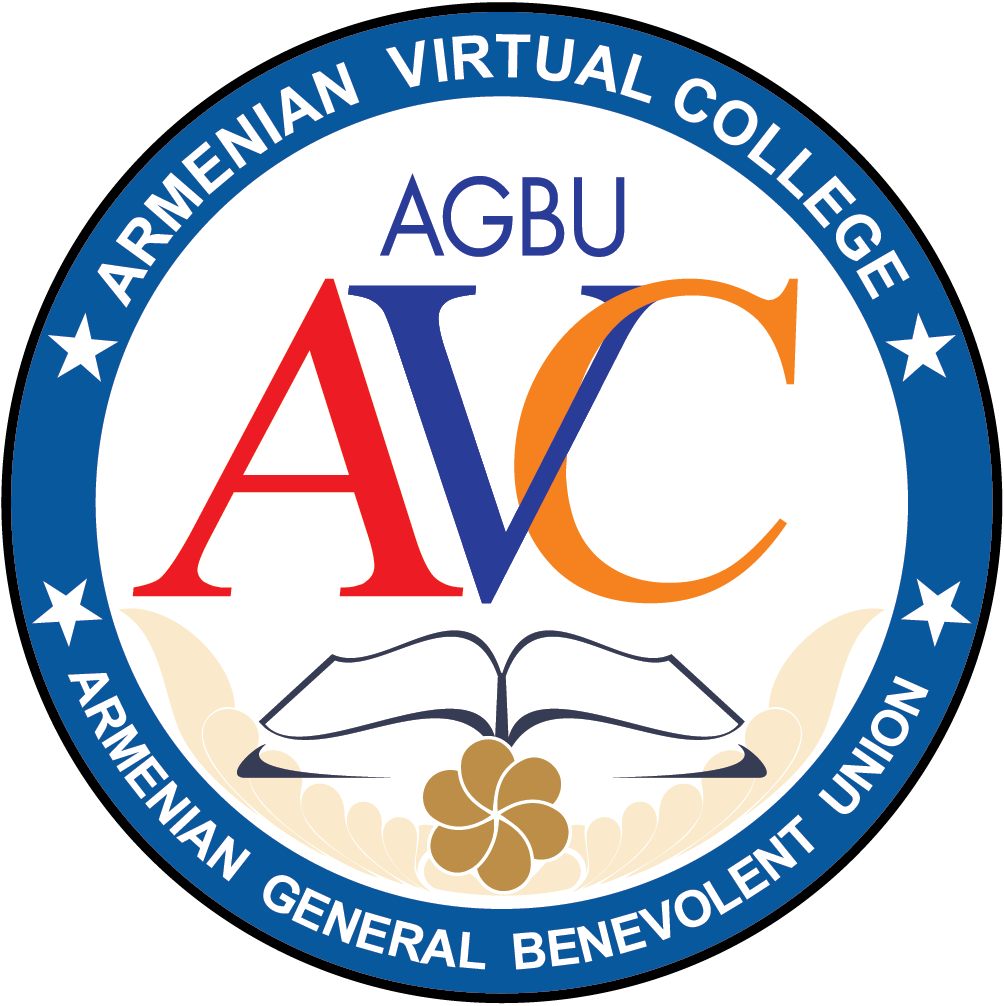“Each of us bears the responsibility to preserve, spread, and make sure the Armenian language, history, and culture live forever.” This realization became Lusine Hayrapetyan’s greatest motivation to deepen her knowledge of the Armenian language through AGBU AVC online courses.
Lusine is a 28-year-old translator and foreign language teacher residing in Moscow, Russia, who works at M.V. Lomonosov Moscow State University. Both of her parents are originally from Aterk village in the Martakert region of Artsakh and were forced to move to Russia due to the war. From an early age, Lusine and her siblings were taught to speak Armenian by their parents. Talking about Armenian history, culture, and poetry has always been a common theme in their household.
Later, during her undergraduate studies, Lusine participated in an Armenian language program and made a trip to Armenia. This trip made her fall in love with Armenia, the language, and the culture. After a month of studying at Yerevan State University, Lusine realized that she wanted to further deepen her knowledge of the Armenian language.
Fortunately, another participant of the program, Mariana Papazian from Brazil, whom Lusine had befriended during her trip, recommended that she look into AGBU Armenian Virtual College (AVC) courses. After registering, Lusine began her language learning journey with AVC.
A few successful terms later, we interviewed Lusine to see how her studies were going and to learn about her experience as an AVC asynchronous program e-learner.
What excited you about learning online when you enrolled in AGBU AVC courses?
Last year, I decided to continue learning Armenian through the AVC platform. Given the fast pace of modern life and heavy workload, online education seemed like the best solution — and, sure enough, I was right.
Why did you decide to enroll in the AGBU AVC asynchronous program? What were your expectations and were they met?
I enrolled in the asynchronous learning program to be able to manage my study time independently. It was my first experience with asynchronous learning, and at first, I had some doubts about the process and the final outcome. However, thanks to the well-structured and methodologically sound program and my own efforts, I not only successfully completed the course but also felt inspired to continue. This year, I completed another level of the Armenian language course, which is a major personal achievement and a source of continued motivation for me. I can confidently say that my expectations were not only met but exceeded. I’m deeply grateful to your entire team and my AVC online instructor, Gohar Gevorgyan.
Since you are studying on your own terms in the asynchronous program, how do you practice the language in your day-to-day life?
Practicing Armenian is an integral part of my daily life. I speak it with my family and friends every day, and to maintain my literacy, I try to read Armenian literature that is appropriate for my current level.
Can you share some tips for other e-learners on how to stay motivated and disciplined to achieve their language learning goals?
I believe the most important advice for staying motivated in learning Armenian is to ask yourself: “Who am I? Can I consider myself Armenian? Do I want to pass on my culture, values, and language to my children? Do I want to know about the significant role Armenians have played not only in Armenian history but in the history of humanity—and preserve that memory for future generations?” Honestly, when I answered these questions for myself, I understood that each of us bears the responsibility to preserve, spread, and make sure the Armenian language, history, and culture live forever. That realization became my greatest motivation.
Has language learning helped you in your personal or professional life? If so, how?
Learning the language has helped me both personally and professionally. On a personal level, I can now communicate more easily with my friends from Armenia who speak literary Armenian. Professionally, as a linguist, I’ve always been fascinated by languages, their features, and patterns. For example, while studying Armenian through AVC, I encountered many interesting linguistic phenomena and drew parallels between familiar grammar structures in English, Russian, and Spanish with those of Armenian. The process was truly fascinating.
Lusine plans to continue her language-learning practice and achieve even better results in the future. “I sincerely thank the entire AGBU AVC team for this wonderful opportunity to study Armenian through the online college. To the excellent curriculum designers and online instructors — thank you for your invaluable contribution to preserving and developing our native language, history, and culture. It truly is priceless,” concludes Lusine.









